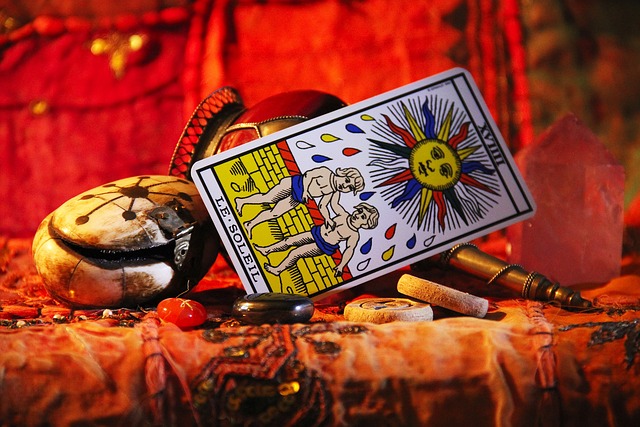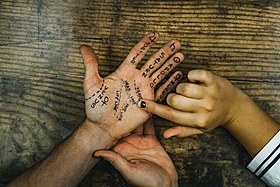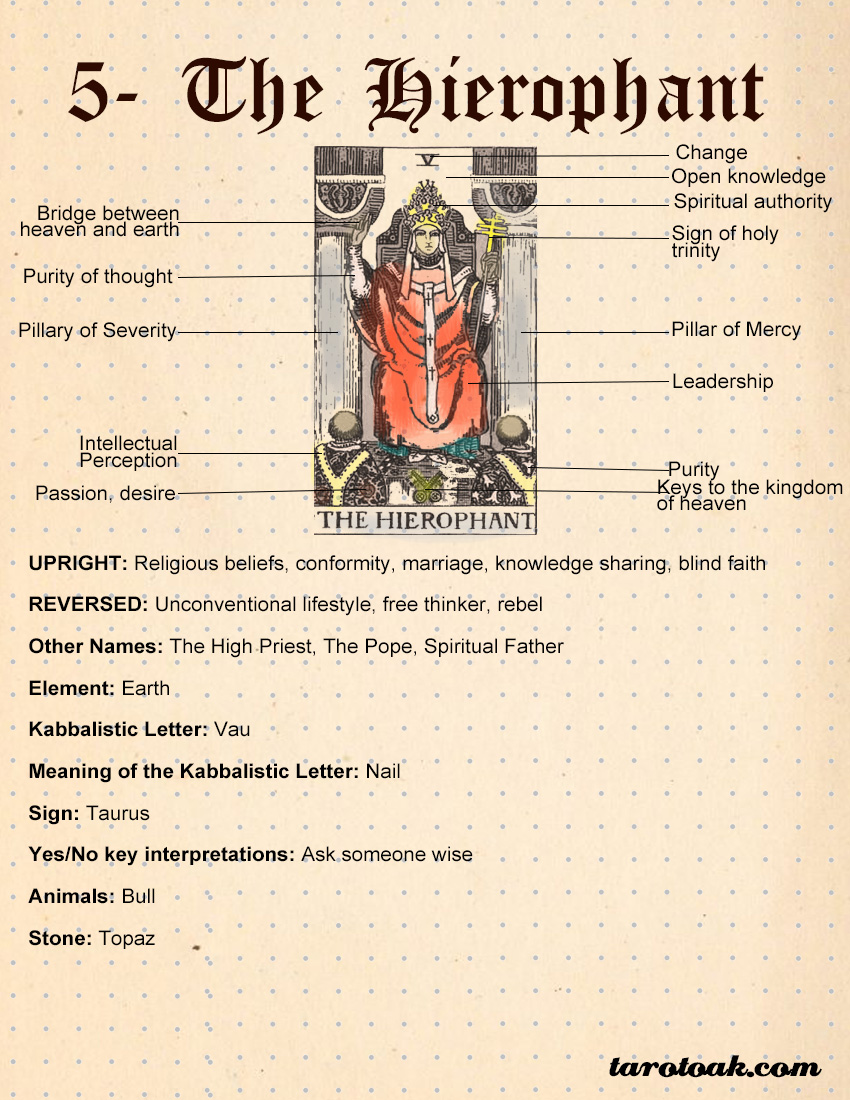
There are many ways to learn how to read tarot cards. You'll need to have an intuitive sense and a solid understanding of the symbols that make up the tarot deck. It's also important to practice. To learn how to read tarot decks, you will need to first get a reference tarot card. Next, practice and create a positive energy field.
Be a tarot deck reader
As a tarot card reader, you'll be able to give advice to clients, who may have complicated issues that require a detailed reading. To be more accurate, however, you will need to have a basic understanding of how the cards work. The cards can be used to foretell the coming events. Tarot readers can also tell people when something bad is about to happen, which can help them prepare for such events.
When you're conducting a reading, you'll shuffle a deck of cards and lay them out in a spread. This spread may contain either ten or twenty four cards.

A tarot reference card is available
Knowing the meanings of each card is helpful when you are learning to read tarot. Knowing the meanings of tarot cards can help you break down complex questions. The tarot deck reference will help you better understand the symbols. Tarot card reference cards are crucial for improving your reading skills. They can also be used to help you choose the right cards for your questions.
There are several books available that will help you learn the tarot card meanings and symbols. Most of them will come with small tarot card references that simplify the meanings of each card into a few words. But, tarot should be understood as an interpretive tool. Learn to use your own idioms and language when interpreting the cards.
Teach yourself how to read tarot decks
Practice is one of the most important things to do to improve your abilities as a tarot readers. Reading tarot cards will improve your intuitive powers and help you see the bigger picture. It is important not to make assumptions about the meaning of tarot card. There are many layers to tarot card meanings. Your interpretation will differ from others.
Learn the meanings and symbols of the tarot cards before you can learn to read them. You can then practice reading the Tarot in real conversation after you have learned about the meanings. This way, you can learn to connect the cards with each other and understand the various spreads. This is similar to learning a language. You need to practice as much and continue practicing.

Develop a positive energy field
A positive energy field is one of the best ways you can become a tarot readers. You can tune in to the messages from the cards and help others by having a positive energy field. This field helps you to connect with others. It can also be used to create goals and heal, or practice mindfulness. It can help you connect to your intuition and the cards' energy by creating a sacred area for your readings.
Do not give too much information a tarot reader
Although tarot readers can give you a reading, it is best to not reveal too much about yourself to them. Trustworthiness and reliability are important, regardless of how interested you might be in their advice. They may overstate their abilities and make inaccurate predictions if they give too much information. Don't be fooled by anyone who makes exaggerated promises or exploits your emotions for business.
Tarot is a mysterious device, with inherent powers that remain largely unknown. Giving too much information would detract from the suspense and mystery of the reading. As if you were telling your friend how to move the planchette of a Ouijaboard, giving too much information to a tarot reader could reduce the suspenseful and titillating message that the cards convey.
FAQ
What hobbies are best for introverts and what types of hobbies would they enjoy?
The ability to focus on just one thing is a hallmark of introverts. They are more comfortable with solitary activities, such reading, writing, music, and watching movies.
They also enjoy spending quiet time alone. They do not like to socialize all day. They often feel bored when they are surrounded by people.
This is why introverts choose hobbies that make them feel alone. An introvert might like to read, listen to music, take photographs, paint, write poetry, or even create art.
Some introverts prefer to live alone. This allows them to focus on their hobby without being distracted by other things.
What is observation hobby?
Observation hobbies can be activities that you watch people do. It could be reading, watching sports or going on holiday. You could also observe other people.
Observation hobbies can be very beneficial because they allow you to learn how creative thinking works. You can draw on this knowledge later, when you work on projects for others.
If you are passionate about something, you will find it easier to learn about it.
For example, if you want to know more about football, you may watch a game or read a book about it. You could visit or take part in exhibitions if you are interested in learning more about photography.
If you like to play music, you can either learn the songs online or get a guitar.
You have the option to make your own meals or take out at a restaurant if you enjoy cooking.
You could also grow flowers or vegetables if you enjoy gardening.
You could take a class or go out dancing with your friends if you enjoy dancing.
You can paint pictures if your passion is painting.
If you like writing, you could write stories or poems.
You could also draw pictures if you enjoy drawing.
If you love animals, you could look after pets or work at a zoo.
If science is your passion, you might choose to study biology or chemistry.
You can read books, listen to podcasts, or watch films if history interests you.
You could explore the world or travel to places you love if you are a lover of traveling.
What are some good hobbies ideas?
You can find the best hobbies that you love doing for yourself. If you enjoy what you do, it will be much easier to keep going. If you don't feel well or tired, you will always have an excuse!
There are many hobbies that we all enjoy: gardening, painting and crafts; photography; cooking; sports and games; reading music and film-making; collecting; cycling, walking, dancing and writing; playing instruments and other musical instruments.
Another option is to volunteer at a local charity shop.
You might be looking for something more adventurous. Try scuba diving, rock climbing or parasailing.
There are many ways to enjoy nature, even if you don't want to travel far. These include caving.
What are some hobbies that you like?
Hobby Ideas that are great for people who enjoy teaching others.
Hobbies can allow you to be creative and have fun while learning.
There are many kinds of hobbies. However, all have the same characteristics. They're usually fun activities that require little effort and cost money.
These involve working with others.
You might not think about yourself as a teacher, but chances are there's something you could do to help someone else learn.
Consider starting a hobby to use your creativity to help others.
Statistics
- The Role of the Mind in Sex, Dating, and Love: Men in the “humor” condition received phone numbers from 42.9% of the female participants and were refused 57.1% of the time. (time.com)
- Much of this decline reflects the fact that teens are less likely to work today than in the past; among employed teens, the amount of time spent working is not much different now than it was around 2005. (pewresearch.org)
- 37% Video Games 36% Travel 36% Health and Fitness (quizexpo.com)
- This 100% accurate personality-analyzing hobby quiz discovers your passion based on your characteristics. (quizexpo.com)
- Studies show that just six minutes of reading can reduce stress levels by 60 percent. (oberlo.com)
External Links
How To
How to learn a musical instrument
If you want to learn how to play music, there are many ways to do so. You have the option of going to school, buying a book or taking lessons from someone who plays an instrument. Or, you can watch videos online. Here are some tips and techniques to help you learn if your goal is to create your own learning path.
-
Find something that interests or appeals to you. If you don’t enjoy any of the instruments that you see, you might consider trying another one. If you don't like playing an instrument, it would be difficult to learn how to play it.
-
Be patient. Learning anything new takes some time. Do not expect to be able to master every aspect of the subject immediately. Instead, continue to practice each day.
-
You should practice often. This can be done even when you are tired. This will ensure you don't forget what lessons you have just learned.
-
Choose a good place to practice. It is best to find a quiet space where you will not disturb others. Also, make sure that there aren't too many distractions. You should avoid loud music being played near you.
-
Have fun. Music is meant for enjoyment. Have fun with your practice. Enjoying yourself will motivate you to continue going at it.
-
Set goals. Setting goals will help you to know exactly what your goal is. You will never be ashamed to fail.
-
Keep track your progress. Notate all of your achievements and failures. You'll be able to learn and improve as you go.
-
Take breaks. Sometimes it is enough to just stop and think. Taking breaks can give you the time to think.
-
Ask questions. Ask other people if you have any doubts or confusion regarding certain aspects of the instrument. They may be willing to help.
-
Listening is the best method to learn. Many musicians love to listen to and imitate songs. This helps them understand basic concepts behind the song.
-
Read books. Read books to learn more than just watching videos or learning from classes. You will also find information in books that you won't find anywhere else.
-
You can join a band. Playing with others forces you to practice more. Plus, you will find people with similar interests to you.
-
View tutorials. Tutorials are short videos which explain many topics in great detail. These tutorials usually concentrate on one particular aspect of an instrument. Watching tutorials can help you understand difficult parts of the instrument.
-
Explore different learning methods. Some people prefer to learn via lectures while others prefer to read. Try different methods until you find the one that works for you.
-
Practice makes perfect. The truth is that nobody becomes an expert overnight. You must work hard to become proficient enough to do well.
-
You can learn from other musicians. Listening and learning from others can help you to learn faster.